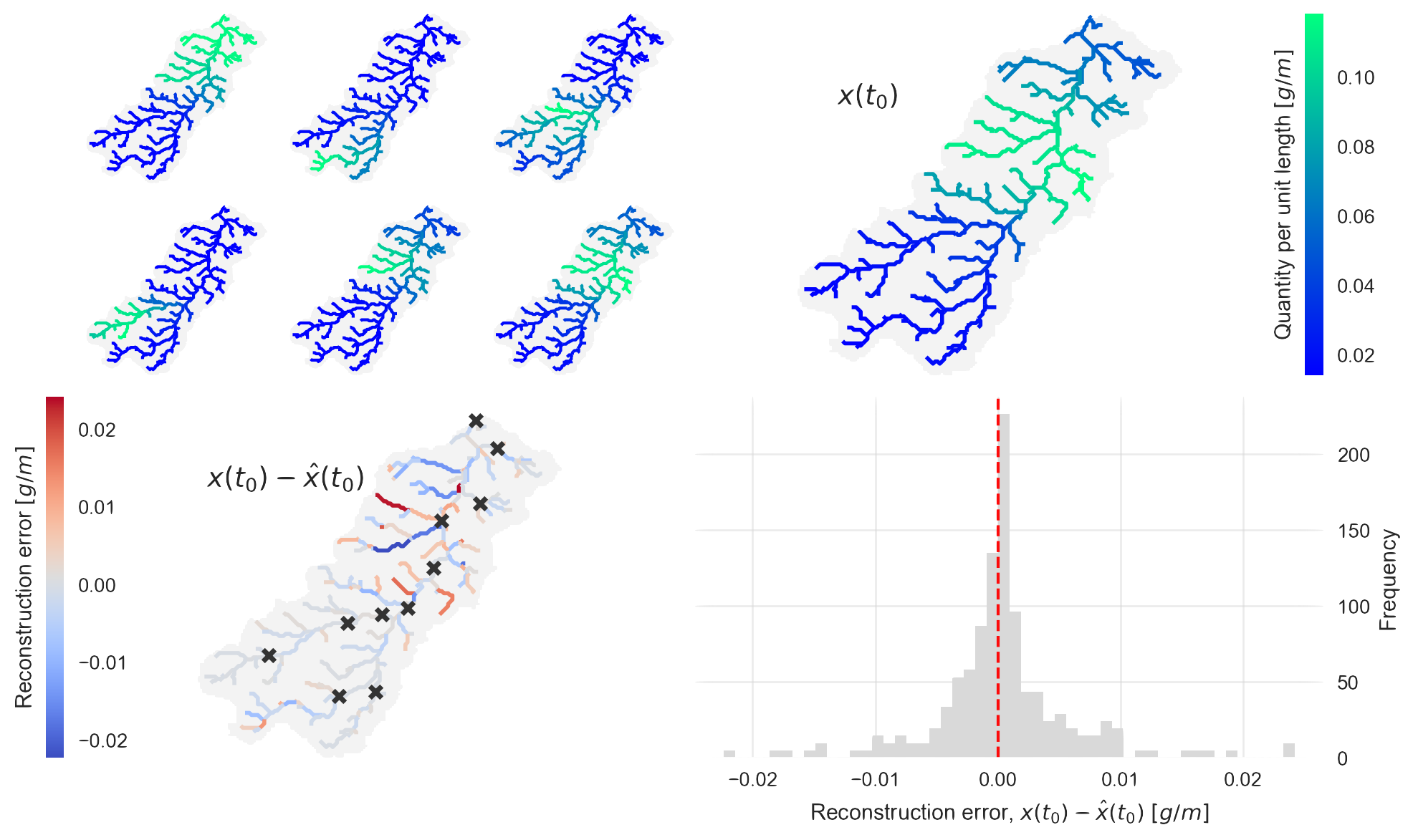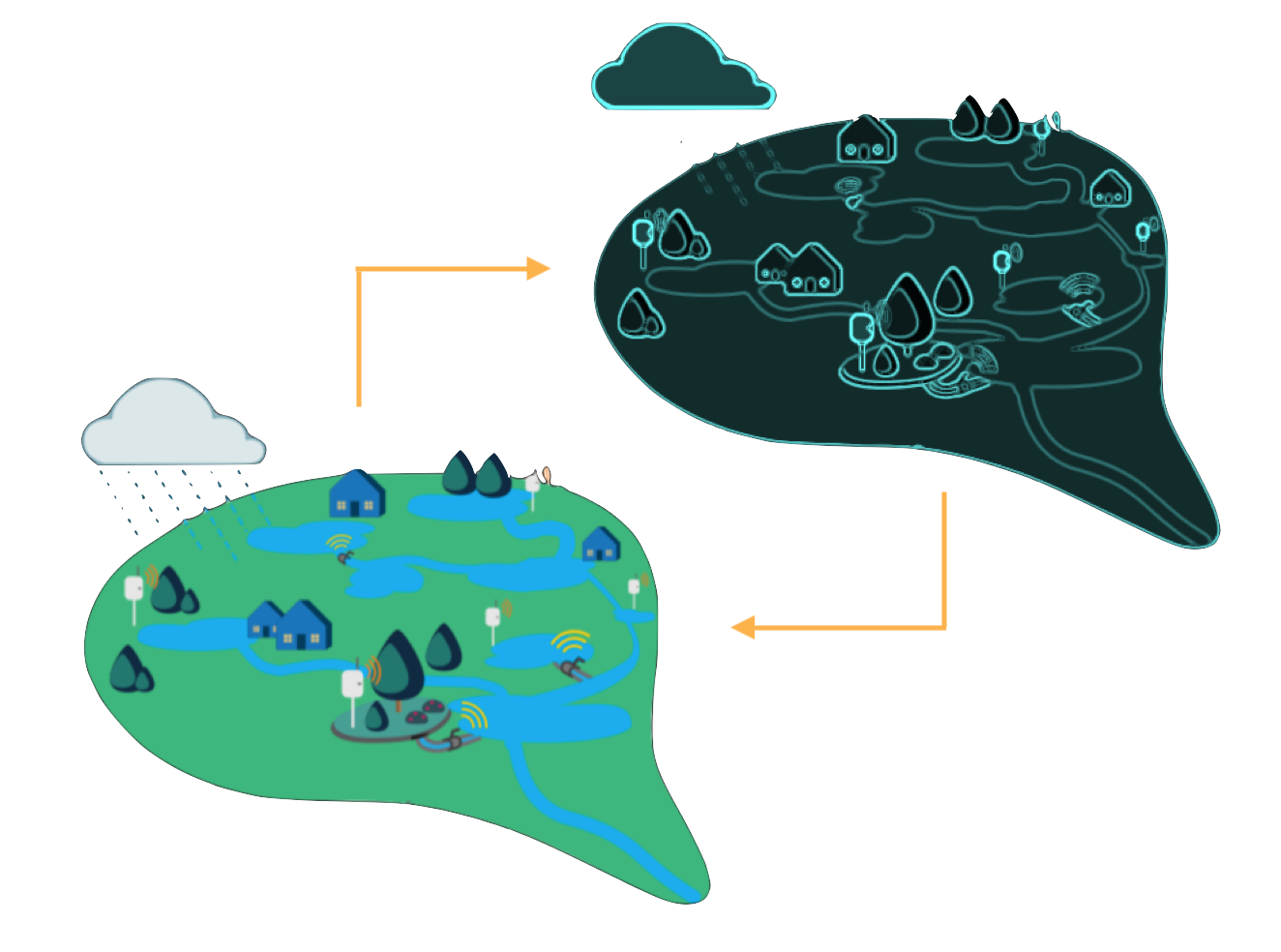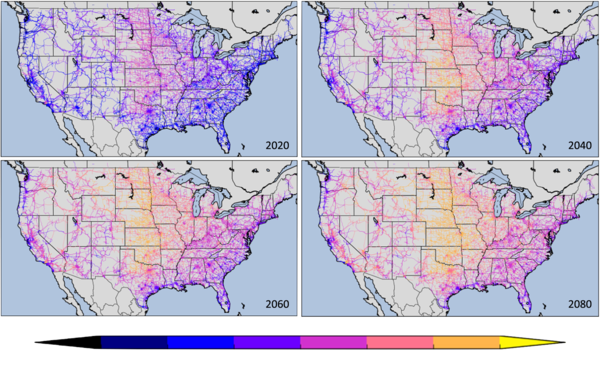Research
Our goal is to build intelligent water systems that use real-time sensing and control to solve modern water challenges.

Wireless sensor networks for water infrastructure
New technologies are enabling real-time supervision and control of previously static water infrastructure. We are designing a new generation of cyber-physical systems that incorporate low-power embedded electronics, wireless communications, dynamic controls, and web services to transform passive water systems into active ones.
State estimation and control
Like self-driving cars, autonomous water systems will require new algorithms to estimate system dynamics from sensor data and guide behavior towards desirable states. We are exploring how advances in control theory can improve our understanding of water infrastructure and enhance resilience.
Digital twin models of water infrastructure
Water managers are increasingly seeking digital twins of real-world water networks that combine sensor data with online models and visualization tools to better understand and control system dynamics. We are building new real-time models that will allow operators to geolocate flooding, detect maintenance emergencies, and better implement dynamic control.
Coupled infrastructure system modeling
Water, energy, and transportation grids are closely linked; yet their coupled dynamics are still poorly understood. We are exploring how critical infrastructure systems interact in a dynamical context, and how coordinated sensing, modeling and control can achieve better resilience of civil systems as a whole.Projects

Investigation into carbon, phosphorus, and nitrogen loadings and effects of nitrogen-reducing best management practices for on-site sewage facilities in the City of Austin
The goal of this project is to monitor nitrogen, phosphorus, and carbon loads from on-site sewage facilities (OSSFs) in the City of Austin, TX, and to use these measurements to develop approval processes for OSSF treatment units.Funded by Austin Water and the City of Austin Watershed Protection Department (2024-2025).

Advancing equity-centered stormwater solutions in Austin, TX
This research project will initiate a first-of-its kind equity-centered green stormwater infrastructure pilot program in the Dove Springs community in East Austin. Our goal is to work with City of Austin (CoA) Watershed Protection Department and Office of Sustainability agency staff; Go Austin, Vamos Austin (GAVA); and other community leaders to co-develop solutions to long-standing urban drainage problems that impact underserved communities in the area.Funded by Planet Texas 2050 (2022-2024).

ATX CA3TCH UP: Climate Atlas for Accountability and Advocacy Strategies through Co-production with Historically Underserved Community Partners in Austin, TX
The outcome of the project will be a workflow and decision portal for climate adaptation planning that integrates satellite observations, socioeconomic census data, community survey, and community (qualitative) voices to advance climate justice in vulnerable communities that have a history social, economic, and environmental injustice in Austin, Texas.Funded by NASA Award #80NSSC22K1675 (2022-2023).

Evaluate improved streamflow measurement techniques at TxDOT bridges
The goal of this project is to develop a real-time operational flood forecasting system for Texas roadways and bridges. This flood forecasting system will use a network of roughly 80 streamflow gages along with streamflow predictions from the National Water Model to anticipate roadway flooding and alert emergency operators.Funded by Texas Department of Transportation Contract 0-7095 (2020-2023).

Collaborative Research: NNA Research: Towards resilient water infrastructure in Alaska Native communities through knowledge co-production
This project aims to develop climate-resilient solutions for modernization of water supply systems in rural Alaska by combining continuous monitoring of water infrastructure with co-production of knowledge in collaboration with Alaska Native communities.Funded by National Science Foundation Award #2220516 (2023-2027).

Energy and carbon offsets associated with real-time control of water heater systems
This project assessed carbon offsets attributable to optimized real-time control of multi-unit residential hot water systems in four real-world test sites.Funded by TEAL Systems (2021-2022).
